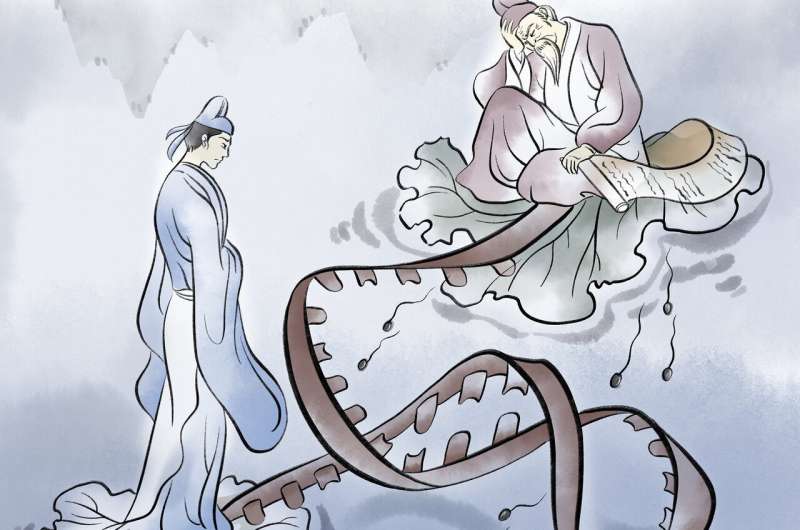Unravelling the pathophysiology and inheritance of depression remains a unique challenge. The genuine “depression genes”, which are responsible for the onset of depression and can be used to generate disease models in rodents or as potential treatment targets, have not yet been identified by genetic analyses. Overall, the findings reveal a causal role of sperm microRNAs in the inheritance of depression, which offers a crucial dimension for the development of novel antidepressant treatments in the future. Credit: Xi Chen, Nanjing University
A team of researchers affiliated with multiple institutions in China has found that depression in male mice can be passed down to their offspring through RNA. In their paper published in the journal Science Advances, the group describes experiments they conducted with depression in male mice and their offspring.
Prior research has suggested that chronic depression in humans is likely the result of an imbalance of brain chemicals such as serotine, dopamine or norepinephrine. But why such imbalances occur is still a mystery. To learn more about the roots of depression, the researchers looked to lab mice.
In their experiments, depression was induced in several male mice by subjecting them to stressful conditions over a five-week period, after which they lost weight and became more active. The depressed mice were then allowed to mate with normal female mice, which led to the birth of offspring. The researchers noted that they were unable to spot any behavioral differences between mice with depressed fathers and mice with non-depressed fathers. But when they added a mild stressor, those mice with depressed fathers became easily depressed, while those with non-depressed fathers did not.
In taking a closer look at the depressed fathers, the researchers found differences in RNA in their sperm. They also found that injecting the different RNA into embryos of mice born to non-depressed fathers led to offspring that developed depressive symptoms more easily when exposed to mild amounts of stress. And they also found that injecting synthetic RNA designed to counteract the parts of the RNA in the impacted mice prevented those mice from developing depressive symptoms when exposed to mild amounts of stress. The researchers found differences in sperm RNA in the offspring of the depressed mice, suggesting that depression could be passed down multiple generations.
Schematic description of the causal role of sperm microRNAs in the inheritance of depression. Credit: Xi Chen, Nanjing University
The researchers sum up their work by suggesting that depression in mice can be passed down from one generation to the next through epigenetic changes—traits that are acquired over the course of a lifetime—and that it can be treated successfully with synthetic RNA. They researchers also note that their work lends credence to theories that suggest corticosterone level changes in mice can result in changes to RNA in mouse sperm.
More information: Yanbo Wang et al. Sperm microRNAs confer depression susceptibility to offspring, Science Advances (2021). DOI: 10.1126/sciadv.abd7605
Journal information: Science Advances
© 2021 Science X Network

























